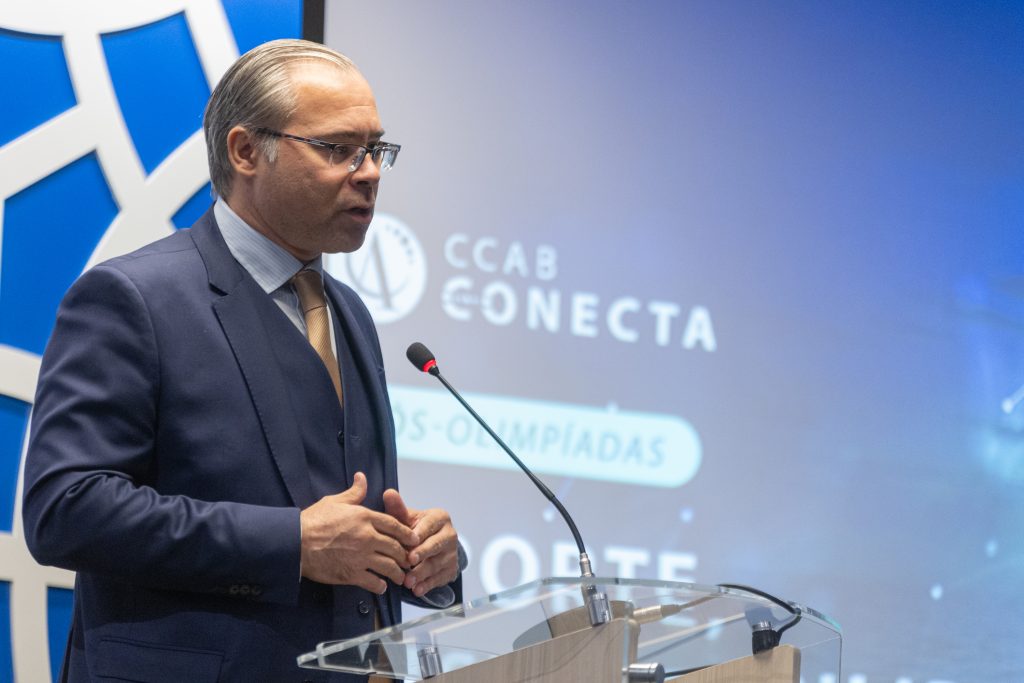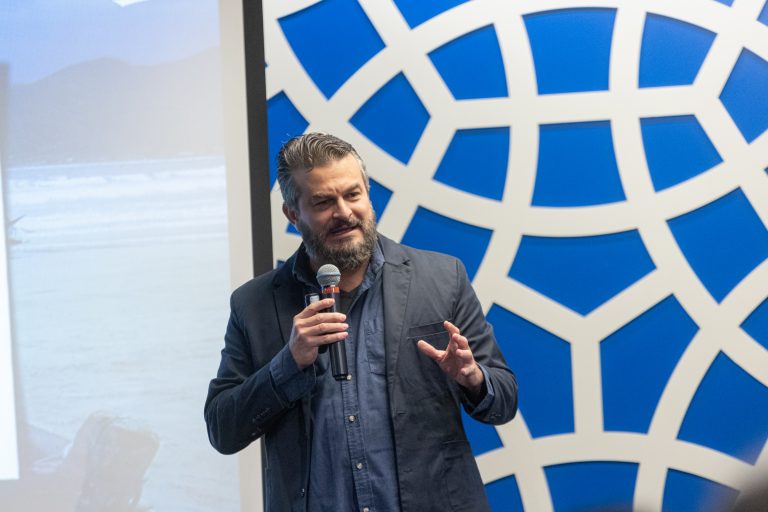São Paulo – Filmmaker David Schurmann and Azerbaijani Ambassador Rashad Novruz stressed the urgency of tackling climate change for our future. The two talked in another lecture series of the ABCC Connects event cycle on Wednesday (18) at the Arab-Brazilian Chamber of Commerce (ABCC) in São Paulo.
Schurmann addressed topics related to the environment, leadership, and teamwork in the panel “Post-Olympics – Sports, Sustainability, and Business.” Schurmann is a filmmaker and director of the films Little Secret (2016) and My Penguin Friend (2024), among other productions. He spent much of his life at sea, sailing with his parents, siblings, and crew, and shared his experiences aboard a sailboat and the climate challenges humanity needs to tackle to ensure the continued existence on planet Earth.
“I want to live here—this planet is wonderful, and we are all in this together,” he said, referring to the problems already posed by climate change. Around three years ago, the family started the initiative Voice of the Oceans, which promotes awareness on environmental preservation, especially of the oceans, and also conducts research in partnership with universities. Combating improper waste disposal is crucial to preserving the “Blue Amazon,” that is, the oceans. The Voice of the Oceans focuses primarily on plastic waste that contaminates the oceans and marine life.
“There is a point on planet Earth, called Point Nemo [also known as the Pacific Ocean’s Pole of Inaccessibility], which is the most distant location from human presence on our planet. The last time we sailed by there, it was distressing. We saw garbage, waste from human activity. We then decided that we should give something back to the ocean,” he says about the location in the southern Pacific Ocean. His parents, Vilfredo and Heloísa Schurmann, started sailing with their children in April 1984. Since then, they have completed several circumnavigations of the globe, produced cinematic content, and have been featured in television series.
Schurmann also shared some experiences and examples of leadership that life isolated aboard a boat provides. Among the lessons that are valuable both at sea and on land, he mentioned creating and following processes; unity between leadership and crew to solve daily problems; trusting leadership while leaders also need to share information with their subordinates; acting on opportunities and having commitment and resilience in the face of difficulties.
Leadership on climate
Between November 11 and 22 of this year, the world’s attention will be focused on Baku, the capital of Azerbaijan, a major oil producer with 10 million inhabitants located in Central Asia. The country will host the COP29 United Nations Climate Summit.

“It will be a great opportunity for us to transform. We have a diversification strategy [away from oil]. We’ve invested in infrastructure, education, and tourism. But the global agenda presents us with challenges,” said Novruz about environmental challenges.
In the final days of COP28, held between November and December 2023 in Dubai, United Arab Emirates, Azerbaijan was announced as the host of COP29. COP30, in 2025, had already been assigned to Belém, Brazil, but COP29 did not yet have a host. Azerbaijan, along with European competitors, applied and won the bid to be the venue for the climate discussions.
The agenda for COP29, Novruz said, will focus on reaching agreements and finding ways to finance support for developing countries to combat climate change. He noted, however, that there is a long way to go to preserve the environment. Novruz also mentioned that Azerbaijan, the UAE, and Brazil form a troika, a group created by the three countries to promote international cooperation to achieve the goal of limiting global warming to 1.5°C. Discussions that began in Dubai are expected to continue in Baku and Belém, the diplomat said, to address challenges in pursuit of a less severe climate for future generations.
Read more:
We need to talk about carbon
Translated by Guilherme Miranda




